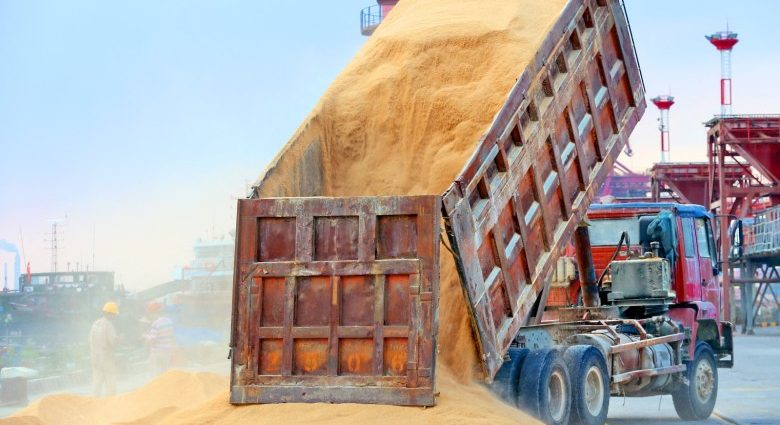As recently as just a few years ago, China was an unstoppable juggernaut. The budding superpower’s economy was growing at supersonic speed. By some measures, it had overtaken the United States economy as the world’s largest.
So meteoric was China’s rise that some pundits were calling this century “the Chinese century,” echoing Henry Luce’s 1941 declaration that “the 20th century is the American century.”
There’s less of that talk these days. China has hit a rough patch. Growth is slowing. Debt is piling up. The Shanghai and Hong Kong stock markets are tumbling. Exports were down double-digits in June and July.
Big property developers are struggling to stay afloat as the long-running crisis in China’s property sector worsens. One of the largest, Evergrande, recently filed for bankruptcy protection.
Some economic statistics are looking so bad that the government has decided to hide them. After the youth unemployment rate hit 21.3% in July, China stopped releasing the figures in July.

Fixing what’s broken in China’s economy won’t be easy. The central bank is slashing interest rates but some analysts believe government stimulus won’t turn the economy around. The underlying problem, they say, is lack of confidence.
One prominent economist with a particularly pessimistic view is Adam Posen, president of the Peterson Institute for International Economics, a Washington-based think tank. Writing in the journal Foreign Affairs, Posen argues that heavy-handed government intrusion in the economy has spooked Chinese consumers and investors.
The government, Posen says, has violated an unwritten bargain: The Chinese people are free to do business as long as they stay out of politics.
Since Premier Xi Jinping took power in 2012 he has brought prominent capitalists to heel, given party and state more say in the management of private companies and tipped the scales in favor of state-owned enterprises.
There’s only one reliable cure, Posen says: “credibly assuring ordinary Chinese people and companies that there are limits on the government’s intrusion into economic life.” That cure, he maintains, is “undeliverable” because the government’s repeated heavy-handedness has undermined its credibility.
Xi’s “extreme response” to Covid – total lockdown – was the final straw, but the credibility problem predates the pandemic. Durable goods consumption and private fixed investment began declining four years before Covid. The 50% rise in new household bank deposits as a percentage of GDP – a sign of fear – began two years before Covid.
Xi’s regime has intruded so often, Posen argues, that it can never assure people that it won’t intrude again. “Once an autocratic regime has lost the confidence of the average household and business, it is difficult to win back,” he writes. “A return to good economic performance alone is not enough, as it does not obviate the risk of future interruptions or expropriations.”
Posen’s highly political explanation of China’s economic problems is, to be sure, subject to challenge. His premise that an autocracy can’t win back lost confidence is debatable.
Yet even a purely economic analysis with no political spin makes China’s problems appear hard to solve, some analysts say. Michael Pettis, an American professor of finance in Beijing, is one of them.
Pettis argues that the policy that once helped drive China’s torrid growth – suppressing consumption in favor of savings and investment – has in more recent years led to “nonproductive investments,” like those in the property sector.
The only cure is “rebalancing” the economy to emphasize consumption, he maintains. But that will be hard to do and will, if successful, depress economic growth.
Some Americans will be tempted to take pleasure in China’s misfortune. It would be natural enough. Even were China not a rival, Americans don’t want their country to be number two to anyone in any way.
It’s a temptation to be resisted, though. China may be down, but it is not out. Its economy’s growth, while slow by its standards, is still likely to be faster than the US economy’s. It’s still a superpower despite its considerable problems.
And, of course, not every analyst is as convinced as Posen and Pettis that the problems are unsolvable.

Still, there will be consequences. US agriculture product exports to China could be among them. That said, even an economically healthy China is likely to be an increasingly challenging market for US agriculture. The Chinese are looking to rely less on US suppliers, just as Americans are looking to rely less on China.
More broadly, the world economy will miss the considerable economic stimulus a healthier China has provided in the past. And one other worrisome thing: A troubled China could be a more dangerous China. Rulers have been known to deflect domestic discontents with foreign adventurism.
Blessed with huge numbers of industrious people, China ought to be able to pull out of this downspin. That there are serious analysts suggesting it can’t is testimony to how serious the country’s problems are.
Former longtime Wall Street Journal Asia correspondent and editor Urban Lehner is editor emeritus of DTN/The Progressive Farmer.
This article, originally published on August 21 by the latter news organization and now republished by Asia Times with permission, is © Copyright 2023 DTN/The Progressive Farmer. All rights reserved. Follow Urban Lehner on Twitter: @urbanize

